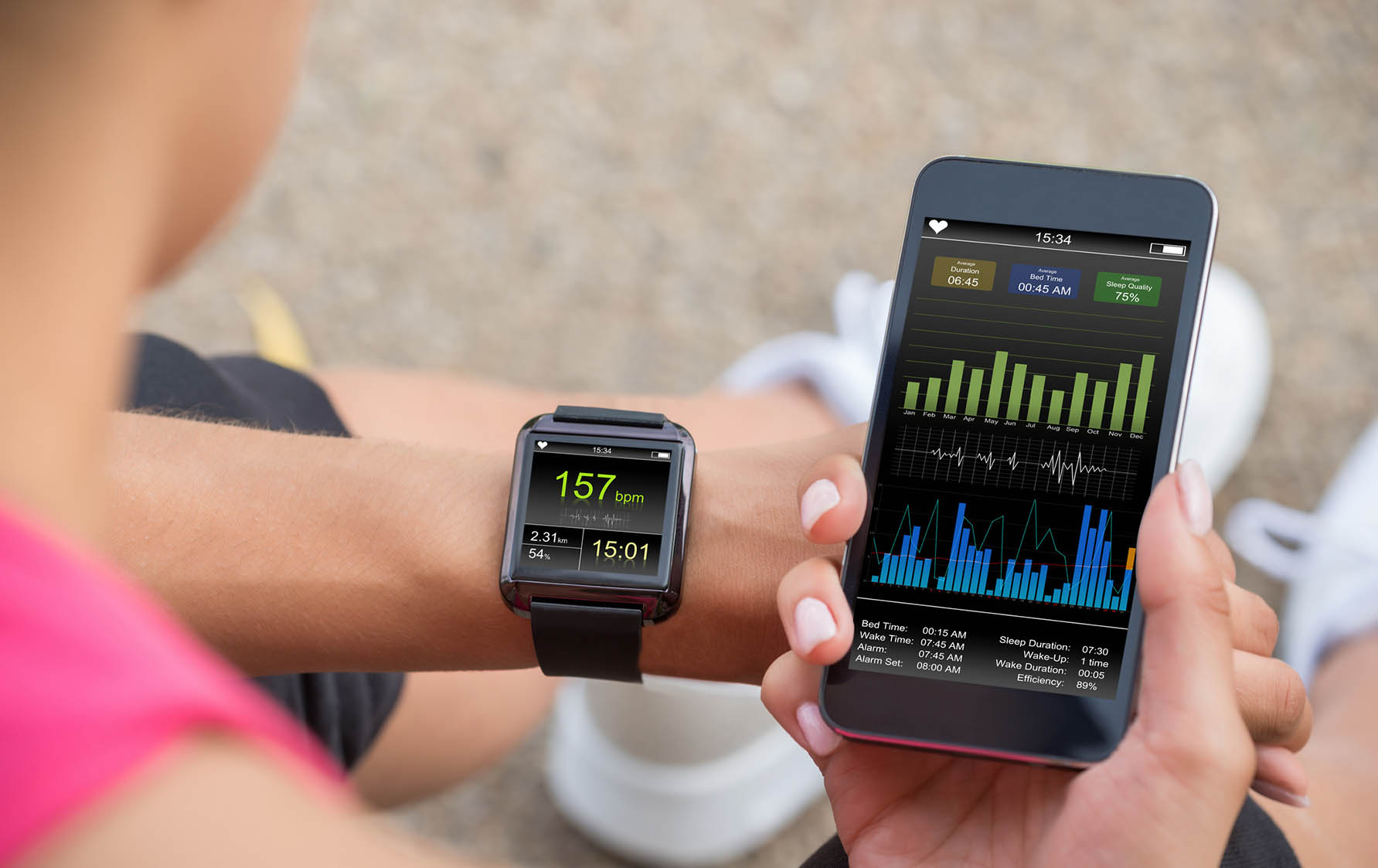While we have heard the lament that too much tech is bad for your health owing to inactivity, technology in the form of wearables and even facial scans is fast moving the dial on improving people’s health rather than the other way around.
At a recent Momentum Multiply roundtable, practising dietician Mbali Mapholi pointed out that eating healthier, for example, has never been easier. Apps such as FatSecret and MyFitnessPal allow you to track your calorie intake and even break it down further, so you can see, for example, how much protein you’ve had for the day versus carbs and sugar. “This helps you make healthier choices and also understand how much of your daily allowances you are consuming, and can guide modifiable lifestyle changes,” she says.
An academic paper, Longevity Leap: Mind the Healthspan Gap, published by the National Centre for Biotechnology Information and written by Armin Garmany, Satsuki Yamada and Andre Terzic, points out that while the average lifespan is 73, the average health span – which refers to the length of time that a person is healthy, not just alive, currently sits at around 62 years globally.
Health tech to manage underlying risks
Over the last decade, physicians have started recognising that symptoms such as anxiety, depression, fatigue, inflammation, high blood pressure, poor sleep and loneliness are indicators of underlying risks that can lead to disease, even in the absence of a formal diagnosis.
The good news is that managing these underlying risks has become a simpler process – literally at the touch of a button, thanks to leaps in modern technology and the introduction of health tech products such as wearables. Wearables could include chest-strap heart rate monitors, smartwatches, fitness trackers and smart rings. Yes, now a ring around your finger can track the same metrics as a smartphone and is more discreet. The key difference is that the ring doesn’t have a screen for obvious reasons. Instead, it syncs with your smartphone.
Roundtable moderator, Michael Mol, said his phone measures his breathing pattern and checks for sleep apnea while his smart ring monitors his body temperature and heart rate. “In the morning, the Multiply app uses all this information and I can see at a glance what my energy levels are for the day,” he said.
Read more in Daily Maverick: World Health Day: Here’s how AI and digital health are shaping the future of healthcare.
“People who know their health claim less,” said Márcia Eugénio, head of Momentum Multiply’s wellness rewards programme. “Through new and evolving digital platforms, we’re able to provide personalised, meaningful information, making it easier for them to make informed decisions about their health.”
Momentum Multiply uses photoplethysmography (PPG) technology in the Multiply app for face scans that monitor your vital health markers, including autonomic nervous system regulation and lifestyle disease risks. Momentum Multiply boasts that the scan, which traditionally requires a 30-minute consultation and a trip to the doctor, can now be done in 90 seconds from anywhere.
And it’s not just about wearable tech. Conversational artificial intelligence, or CAI, is helping individuals manage their mental health too.
Pranav Gupta, global head of commercial and partnerships at Wysa, which offers users an AI conversational coach, said he has found that people are three times more likely to open up to AI than to a real person.
“The stigma of raising your hand and asking for support is extremely high even today. We ran a survey which showed that embarrassment was one of the top reasons why people don’t seek support in terms of mental health,” he said.
The World Health Organisation has developed six key principles for the ethical use of AI in healthcare, and chief among these is that AI should never be the sole provider of healthcare.
Read more in Daily Maverick: Beware the ethical and legal considerations of using wearables in the workplace.
Acting on data from tech
Neurologist and founder of Memorability, Dr Kirti Ranchod, has seen a definitive shift in people seeking to understand the impact of mental health and using tools to navigate their mental wellbeing.
In addition to health tech, Ranchod said easily available tools that can help reduce stress and anxiety are meditation, mindfulness and art. “Drawing is a very active form of meditation and has been shown to reduce heart rate, blood pressure and cortisol levels, which are the markers of stress. Looking at the ecosystem, exercise and nutrition has been shown to be as effective as medication for some people with anxiety and depression and so is social interaction,” she said.
However, she cautioned that sometimes the use of health tech can result in an overload of negative information that can be overwhelming for the end user.
“It’s important we build incentives and motivation to change behaviour within digital tools like apps and consider how we foster community and collaboration to facilitate connection and impact of habits,” she said. DM





